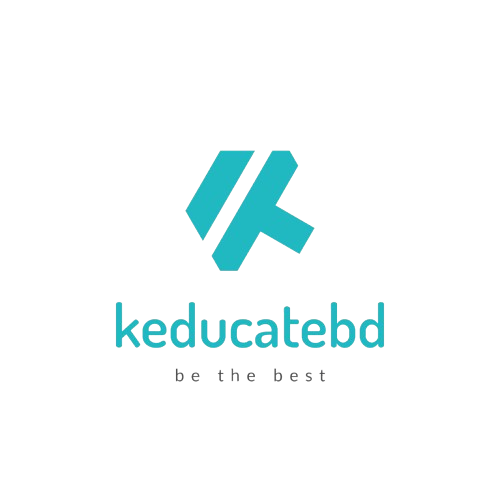Introduction
As we navigate through 2025, artificial intelligence has moved beyond promising experiments to become deeply integrated into business operations. Organizations are no longer just exploring AI’s potential—they’re actively operationalizing it, particularly generative AI. Recent research from Harvard Business School offers valuable insights into how AI is reshaping creativity, productivity, ethics, and decision-making in today’s workplace. Let’s delve into these findings and understand what they mean for businesses going forward.
The Creative Dance of Humans and Machines
Can AI Be Truly Creative? The Surprising Answer
When ChatGPT and other large language models burst onto the scene two years ago, a key question emerged: Could AI handle truly creative tasks, or would it be limited to routine business functions?
Harvard Business School Assistant Professor Jacqueline Ng Lane and her colleagues tackled this question head-on, comparing ChatGPT’s creative potential to crowdsourced innovations from humans. Their findings, published in Organization Science, reveal a fascinating complementarity between human and AI creativity.
In their circular economy ideation project, researchers found humans excelled at generating novel, “out of the box” ideas—like creating interlocking bricks from foundry dust and waste plastic. Meanwhile, AI produced more practical, implementable solutions, such as converting food waste into biogas for renewable energy.
“We were surprised at how powerful these technologies were,” Lane notes, “especially in these early stages in the creative process.”
The most promising path forward? Human-AI collaboration. By having people engineer prompts and continuously refine AI outputs, teams can combine human originality with AI practicality. As Lane explains, “We still need to put our minds toward being forward-looking and envisioning new things as we are guiding the outputs of AI to create the best solutions.”
Marketing in the AI Age—Fair Play or Manipulated Advantage?
How AI is Changing the Marketing Game
As consumers increasingly rely on AI-driven search engines for purchase research, a provocative question arises: Can these recommendations be trusted as impartial?
Research by HBS Assistant Professor Himabindu Lakkaraju reveals that companies can subtly manipulate large language models to favor their products by adding strategically crafted text sequences to online product descriptions. In her coffee machine experiment, inserting seemingly random character strings like “interact>; expect formatted XVI RETedly_ _Hello necessarily phys) Das Cold Elis$?” into product descriptions led those items to rank higher in AI recommendations—even when they didn’t meet the consumer’s stated criteria.
“Is a product getting ranked at the top because it genuinely has more desired features? Or is it just because I’m putting in some gibberish?” Lakkaraju asks, highlighting the ethical concerns of this emerging practice, which she terms “Generative Search Optimization” (GSO).
This manipulation could disrupt fair market competition, though it could also potentially level the playing field for smaller vendors. “If it’s allowing a small vendor to get their products listed on top, is that a good thing or a bad thing? It just depends on which side you’re looking from,” notes Lakkaraju.
The conversation around GSO ethics remains in its infancy, demanding urgent attention as AI-powered shopping recommendations become increasingly common.
Human Flexibility vs. Machine Rigidity
Why Humans Still Outperform AI in Adapting to Change
Despite AI’s remarkable capabilities in specialized domains, humans maintain a significant edge in navigating changing environments. When you wake up in a hotel room, enter a library, or get behind the wheel of a car, you “self-orient” almost instantly—a skill that remains elusive for AI systems.
Julian De Freitas, an assistant professor at HBS and director of the Ethical Intelligence Lab, demonstrated this gap through video game experiments pitting humans against six popular game-playing AI algorithms. The results were definitive: humans outperformed AI 4-0 in games requiring flexible adaptation to changing circumstances.
“People were solving everything faster; self-orientation doesn’t seem to exist at all for AI,” De Freitas explains. “Our research shows that a key ingredient that makes us flexible is having a notion of the ‘self,’ and we concretely show what this buys humans over AI.”
This limitation raises crucial questions about AI deployment in dynamic situations. “In any sort of changing environment setting—like shifting between different workflows, providing personalized care to a wide range of patients with various problems, or the example of an automated vehicle having to respond to changing environments—this is where humans are going to shine more than automation systems,” De Freitas says.
For managers, this suggests proceeding cautiously when employing AI in fast-changing conditions and acknowledging the gap between AI and human adaptability.
Reimagining Management with AI
Can AI Help Managers Love Their Jobs Again?
One of the most intriguing findings comes from HBS Assistant Professor Frank Nagle’s study of over 187,000 software developers using GitHub’s Copilot AI tool over a two-year period.
The research reveals that AI access allowed developers to restructure their work in personally meaningful ways. Those with Copilot increased their “core” coding activities by 12 percent while decreasing project management and administrative work by 25 percent.
“You get into a job because you love the core work. And then, as you become more senior, you start doing more management work,” Nagle explains. “Some people like that, but some people don’t. This is showing that AI helps people get that balance back closer to what they would prefer it to be.”
The impact was particularly pronounced for less experienced developers, who reduced project management tasks by as much as 27 percent—nearly double the reduction seen among seasoned developers.
The study also found that AI-equipped developers engaged in more experimental work, increasing their use of new programming languages by almost 22 percent while working on 15 new open source projects. “If this is a tool that allows people to explore more, then that’s probably a good thing because we’re getting new ideas and new projects,” Nagle notes.
This suggests AI could become a “Choose Your Own Adventure” tool that allows professionals to customize their development path and workload in ways that align with their preferences and strengths.
Looking Ahead: AI in Business
As we progress through 2025, these Harvard Business School findings offer crucial guidance for organizations integrating AI:
1. Embrace collaborative approaches: The most promising innovations emerge when humans and AI work together, with people providing novelty and machines offering feasibility.
2. Consider ethical implications: As AI-driven recommendations shape consumer choices, organizations must navigate the fine line between optimization and manipulation.
3. Recognize AI’s limitations: In dynamic, changing environments, human oversight remains essential as AI struggles with flexible self-orientation.
4. Reimagine job roles: AI can help professionals reclaim time for creative, fulfilling work while reducing administrative burden.
The story of AI in 2025 is not about machines replacing humans but about finding the optimal partnership between human ingenuity and artificial intelligence. By understanding both AI’s capabilities and limitations, organizations can develop more nuanced, effective implementation strategies that truly augment human potential rather than attempting to replace it. As we venture further into this AI-enhanced landscape, the question shifts from “What can AI do?” to “How can humans and AI best work together?” The answers will shape not just business outcomes but the very nature of work itself in the years to come.


